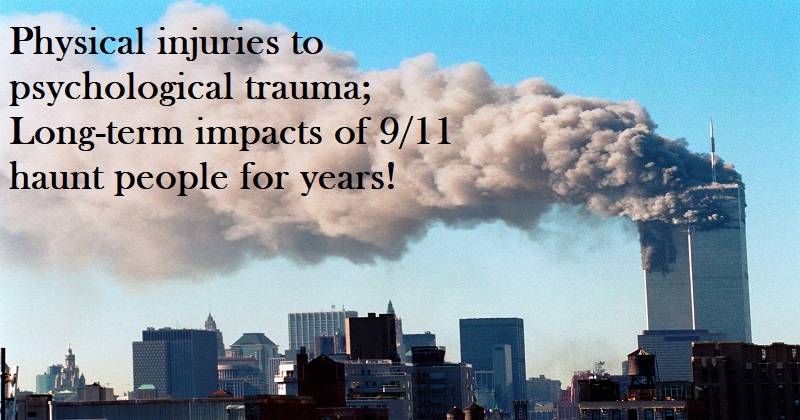
September 11, 2001, often known as 9/11, was one of the worst days in American history, when horrific terrorist assaults altered the country’s political landscape. The whole world was startled after viewing terrible images of the fall of two towering 110-story skyscrapers known as the World Trade Center (WTC) less than two hours after the assaults. Al-Qaeda terrorists drove hijacked aircraft into the WTC buildings in New York and the Pentagon in Washington, as well as another into a field in Pennsylvania, killing over 3,000 people.
The tragedy left an indelible mark on the bereaved families and produced health issues for survivors and rescuers years afterwards. Researchers have identified the physical and emotional health consequences of the accident. In 2019, the US National Library of Medicine announced a request for manuscripts on ‘Long-Term Health Effects of the 9/11 Disaster.”
After the towers collapsed, loads of dust, gases, and debris were discharged, creating health problems among those who were immediately exposed. The papers shed light on the physical and mental health illnesses that continue to affect thousands of individuals years after the catastrophe, as well as the newly diagnosed ailments that have emerged as a result of disease latency.
According to the publications, ‘respiratory and lung difficulties are among the most widespread and very persistent physical health problems’ caused by 9/11 exposure to dust clouds from the collapsed structure and later dust re-suspension. Firefighters who had high-intensity exposure on 9/11 were more likely to develop bronchial wall thickening, emphysema, and air trapping.
Sarcoidosis and sarcoid-like granulomatous syndrome, a rare autoimmune illness that can affect any organ, was also discovered. ‘It has previously been recorded as a granulomatous illness involving the thoracic organs among rescue, recovery, or clean-up employees, mainly among firemen or another rescue, recovery, or clean-up workers arriving early to the WTC site’.
Other long-term health consequences of WTC exposure include neurologic problems and cancer, as well as developing illnesses like as peripheral neuropathy, paresthesia, and thyroid cancer. Survivors of 9/11 have a significant frequency of negative mental health, particularly post-traumatic stress disorder (PTSD). ‘Aside from functioning and physical loss, there is worry that individuals exposed to 9/11 may be at increased risk of cognitive impairment, memory loss, or disorientation at a faster pace than would be predicted typically with age,’ according to one section of the report.
More deaths from 9/11-related diseases than in the attack?
According to a research published on Tuesday, more individuals are likely to have died from diseases connected to 9/11 than were murdered on the actual day of the Al-Qaeda attacks on New York and Washington (September 7). Since it reopened in 2011, the September 11 Victim Compensation Fund (VCF) has received over 67,000 claims. According to the VCF, about 3,900 of those claims were made on behalf of someone who died as a result of a 9/11-related disease.
‘That means the number of persons considered to have died of a 9/11-related disease after 9/11 has now surpassed the number of people who perished on 9/11,’ said Rupa Bhattacharyya, the fund’s ‘special master’. ‘More individuals are now likely to have died of 9/11-related diseases than were killed on September 11, 2001,’ she stated. Cancer affects over half of individuals who have filed claims in recent years.

Post Your Comments